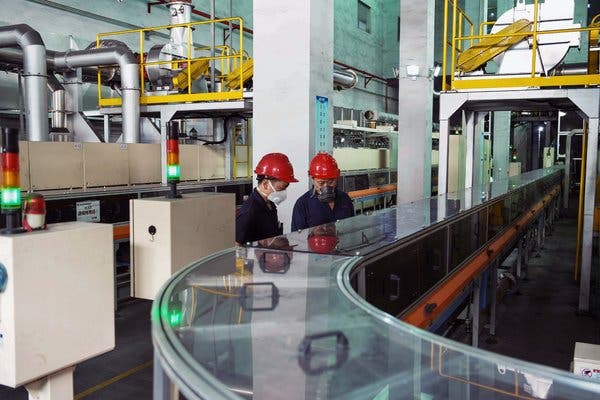Car Dealers Renew Their Opposition To Mandatory EV Sales

Table of Contents
Economic Concerns Driving Dealer Opposition
The core of the car dealers' opposition lies in the significant economic hurdles they face in transitioning to a predominantly electric vehicle market. The shift presents substantial financial burdens that threaten the viability of many dealerships.
-
High Upfront Investment: Adapting to EV sales requires considerable investment in new infrastructure. Dealerships need to install charging stations, acquire specialized tools for EV servicing and repair, and potentially renovate their facilities to accommodate the unique needs of electric vehicles. These upfront costs can be prohibitive, especially for smaller dealerships with limited capital.
-
Lower Profit Margins: Currently, profit margins on EVs are generally lower than those on gasoline-powered vehicles. This is partly due to the higher cost of EV batteries and the competitive pricing strategies employed by manufacturers. This reduced profitability directly impacts dealer revenue and profitability.
-
Market Uncertainty: The long-term success of EVs is still uncertain. Fluctuations in consumer demand, potential market saturation, and the evolving landscape of EV technology create significant economic risks for dealerships investing heavily in the transition.
The potential impact extends to job security. Reduced sales volume due to slower EV adoption could lead to staff reductions or even dealership closures, resulting in job losses within the automotive retail sector. The lack of sufficient government support or incentives specifically targeted at helping dealers navigate this transition further exacerbates these economic concerns. The absence of robust financial aid programs leaves many dealerships struggling to shoulder the costs of this technological shift alone.
Concerns Regarding Consumer Readiness and Infrastructure
Beyond the economic challenges, car dealers express deep concerns about consumer readiness and the limitations of existing charging infrastructure. Widespread EV adoption faces significant obstacles:
-
Range Anxiety: Many potential EV buyers remain hesitant due to concerns about limited range and the availability of charging stations, especially on long journeys. This "range anxiety" is a significant barrier to overcome.
-
High Purchase Price: The initial purchase price of most EVs remains higher than comparable gasoline-powered vehicles, making them inaccessible to a large segment of the population.
-
Lack of Public Awareness: Many consumers lack awareness of the benefits and technological advancements in electric vehicles, hindering broader adoption. Effective public education campaigns are crucial to address this knowledge gap.
The insufficient charging infrastructure in many regions further compounds these issues. A widespread, reliable, and readily accessible charging network is crucial to support a significant increase in EV sales. Government investment in expanding and improving charging networks is essential to address this critical infrastructural deficiency and encourage consumer confidence in electric vehicle adoption.
The Dealers' Argument Against Government Mandates
Car dealers vehemently argue that government mandates represent an overreach into market forces, potentially distorting the natural progression of EV adoption.
-
Government Overreach: They believe the government should not dictate market share through mandates, preferring a market-driven transition based on consumer demand and technological improvements.
-
Reduced Consumer Choice: Mandates may limit consumer choice by prioritizing EVs, potentially overlooking other vehicle types and advancements that could contribute to a sustainable transportation future.
-
Gradual Transition Preferred: Dealers advocate for a more gradual transition, allowing the market to organically adapt to the changing landscape of vehicle technology, guided by consumer preferences and innovation.
Counterarguments and Potential Solutions
Counterarguments emphasize the crucial environmental benefits of transitioning to electric vehicles, highlighting the urgent need to reduce carbon emissions and mitigate climate change. However, acknowledging the dealers' economic concerns is essential to finding a sustainable solution. Potential compromise solutions include:
-
Government Subsidies: Targeted government subsidies could offset the high upfront costs of EV infrastructure and training for dealerships, easing the financial burden of the transition.
-
Dealer Training Programs: Comprehensive training programs can equip dealerships with the skills and knowledge necessary to effectively service and sell electric vehicles, improving their capacity and confidence.
The Future of Mandatory EV Sales and Dealer Involvement
The renewed opposition to mandatory EV sales underscores the complex interplay of economic, infrastructural, and regulatory factors shaping the automotive industry's future. Dealers' concerns regarding economic viability, consumer readiness, and government mandates are legitimate and require careful consideration. While the environmental benefits of electric vehicles are undeniable, a balanced approach is necessary, acknowledging the challenges faced by dealerships during this significant technological shift. We need to find compromise solutions that support a sustainable transition while mitigating the economic risks for car dealers. Engage in the discussion surrounding mandatory EV sales; share your opinions, and research the impact of these policies on the automotive industry and consumer behavior. Explore potential compromise solutions that address both environmental necessities and economic realities. Let's work together to shape a future where environmental responsibility and economic stability can coexist.

Featured Posts
-
 Top Seed Pegula Defeats Defending Champion Collins In Charleston
Apr 27, 2025
Top Seed Pegula Defeats Defending Champion Collins In Charleston
Apr 27, 2025 -
 Eqs Pvr Pne Ag Veroeffentlicht Gemaess Artikel 40 Absatz 1 Wp Hg
Apr 27, 2025
Eqs Pvr Pne Ag Veroeffentlicht Gemaess Artikel 40 Absatz 1 Wp Hg
Apr 27, 2025 -
 Where To Buy Ariana Grande Lovenote Fragrance Set Online At The Best Price
Apr 27, 2025
Where To Buy Ariana Grande Lovenote Fragrance Set Online At The Best Price
Apr 27, 2025 -
 Trumps Trade Concessions A Warning For Canadian Voters From Carney
Apr 27, 2025
Trumps Trade Concessions A Warning For Canadian Voters From Carney
Apr 27, 2025 -
 La Garantia De Alberto Ardila Olivares Una Aproximacion Eficaz
Apr 27, 2025
La Garantia De Alberto Ardila Olivares Una Aproximacion Eficaz
Apr 27, 2025
Latest Posts
-
 Anchor Brewing Company 127 Years Of Brewing History Ends
Apr 28, 2025
Anchor Brewing Company 127 Years Of Brewing History Ends
Apr 28, 2025 -
 127 Years Of Brewing History Ends Anchor Brewing Company Shuts Down
Apr 28, 2025
127 Years Of Brewing History Ends Anchor Brewing Company Shuts Down
Apr 28, 2025 -
 Anchor Brewing Companys Closure A Legacy Concludes After 127 Years
Apr 28, 2025
Anchor Brewing Companys Closure A Legacy Concludes After 127 Years
Apr 28, 2025 -
 Where To Invest A Map Of The Countrys Top Business Locations
Apr 28, 2025
Where To Invest A Map Of The Countrys Top Business Locations
Apr 28, 2025 -
 Identifying Key Business Growth Areas In The Country
Apr 28, 2025
Identifying Key Business Growth Areas In The Country
Apr 28, 2025
